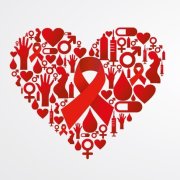Standard of Care and Partnerships Working Group

In 2013, the EACS constituted a working group whose aims were to collect and disseminate information on standard of care, including progress and pitfalls in different European regions, and to provide a platform to share this information among different stakeholders.
This Working Group organised the first standard of care meeting in 2014 following the EACS Governing Board’s decision to organise a biennial meeting on Standard of Care for HIV and Co-infections in Europe. They came to the conclusion that it was essential for EACS to focus on standard of care as a specific topic, related to its main activity and to also take into consideration stakeholders active in the field, such as WHO, HIV in Europe, ECDC and EATG.
Objectives and strategies
- To elaborate a standard of care document which defines benchmarks for different areas of care and treatment according to Guidelines.
- To organise a meeting aimed at identifying indicators to allow a periodic monitoring of their progress in access to testing, access to care, cascade of care and prevention, diagnosis and management of co-morbidities, with a particular attention to the infectious ones.
- To identify beforehand key parameters which could be brought forward before the Standard of Care for HIV and Co-infections meeting 2016.
- To discuss with institutional stakeholders: EU commission, ECDC, WHO, UNAIDS, and HIV in Europe.
- To involve actively individuals living with HIV and Community representatives, such as EATG.

20th European AIDS Conference
15-18 October 2025 Paris, France

EACS Guidelines updated
The EACS 12.1 and the app are available for free on


Educational Programme
Training and educating the next generation of clinicians and researchers is an EACS core activity.

EACS Resource Library
Access all scientific content of EACS core activities! (members only)

Interim Guidance
Interim Guidance on the Use of Statin Therapy for the Primary Prevention of Cardiovascular Disease in People with HIV